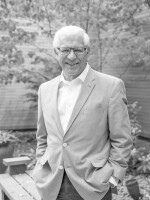This Reader's Corner interview was originally broadcast in April 2013.
In 2008, a young monk seal abandoned on a sandy Hawaiian beach captured the hearts of locals and tourists alike. Playful and inquisitive, the seal quickly developed a love for all things human. When local fishermen objected to his presence, environmental officials made an unprecedented decision to move him across the ocean to the Santa Cruz, California, lab of a marine biologist.
Only 1,100 Hawaiian monk seals remain on the planet, and unless things change drastically, they seem headed for extinction. Because of the seals’ highly endangered status, scientists had never before had the opportunity to study one in depth.
This week's guest, author and scientist Terrie Williams, recounts the obstacles and triumphs she experienced during her two years studying orphan seal KP2, and the unique attachment she formed with him.
Williams' book, "The Odyssey of KP2: An Orphan Seal, a Marine Biologist, and the Fight to Save a Species," offers a rare glimpse into the biology and habits of the Hawaiian monk seal and extends a ray of hope for saving similar species around the globe.
Williams is director of the Marine Mammal Physiology Project at the University of California, Santa Cruz, and a co-creator of the Center for Ocean Health.
As a wildlife biologist, she investigates how large animals, from elephants to whales, survive on our changing planet. In 2002, she was named one of the 50 most important women in society by Discover magazine.
The book was selected as this year's Campus Read at Boise State University and Williams will visit Boise to speak during a free lecture at Tuesday, March 3 at 6 p.m. in the Student Union Simplot Ballroom.
Copyright 2015 Boise State Public Radio




